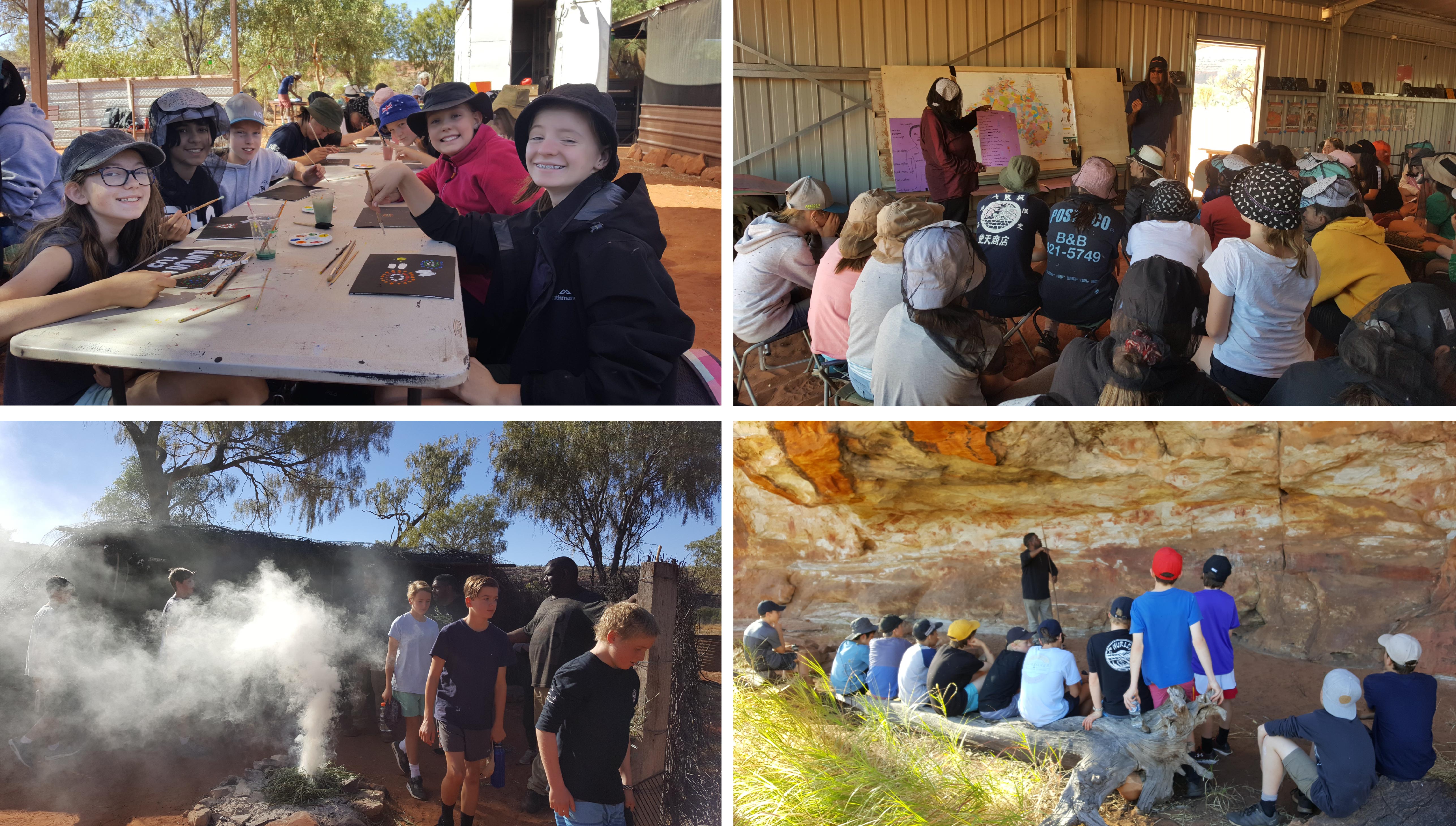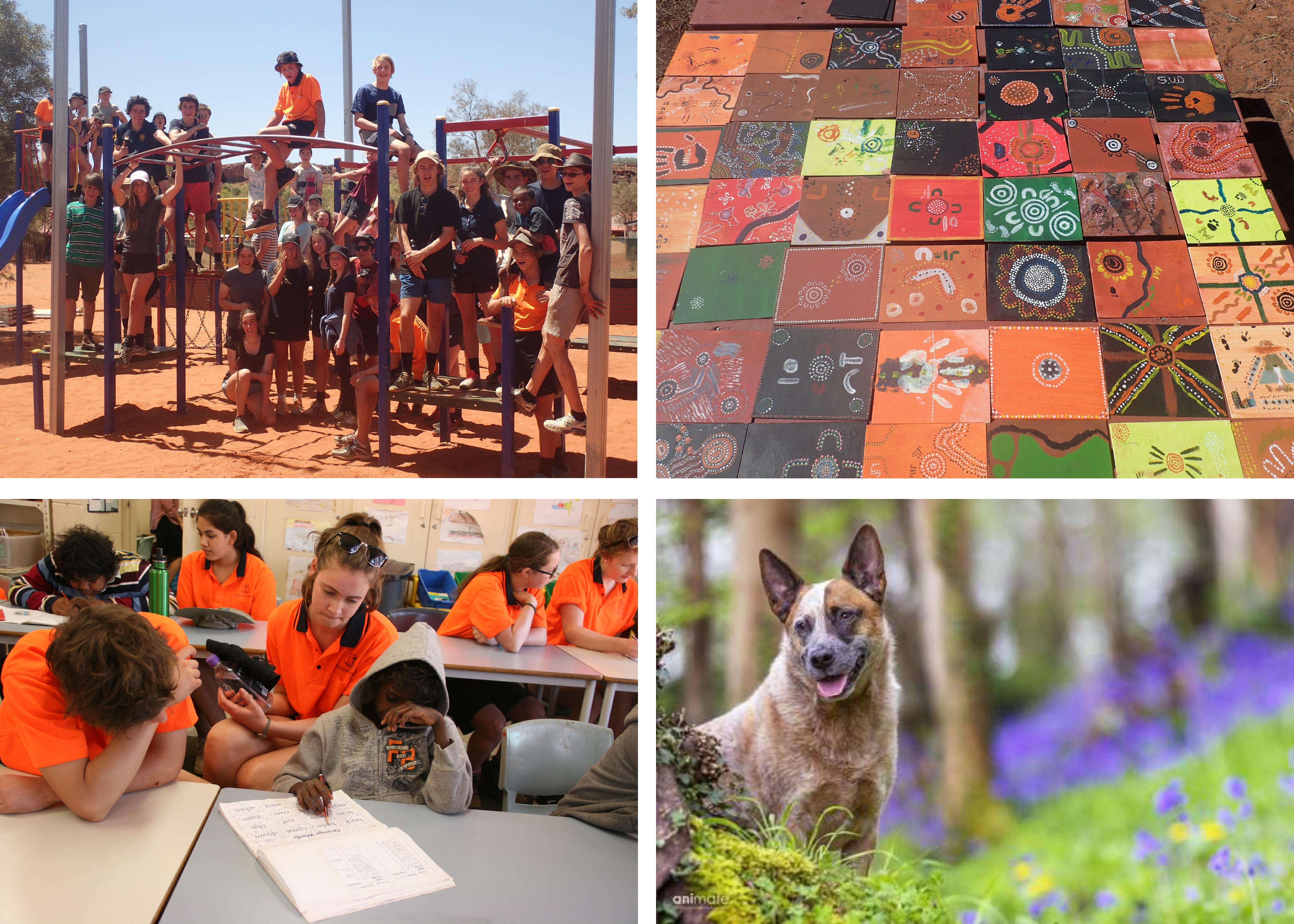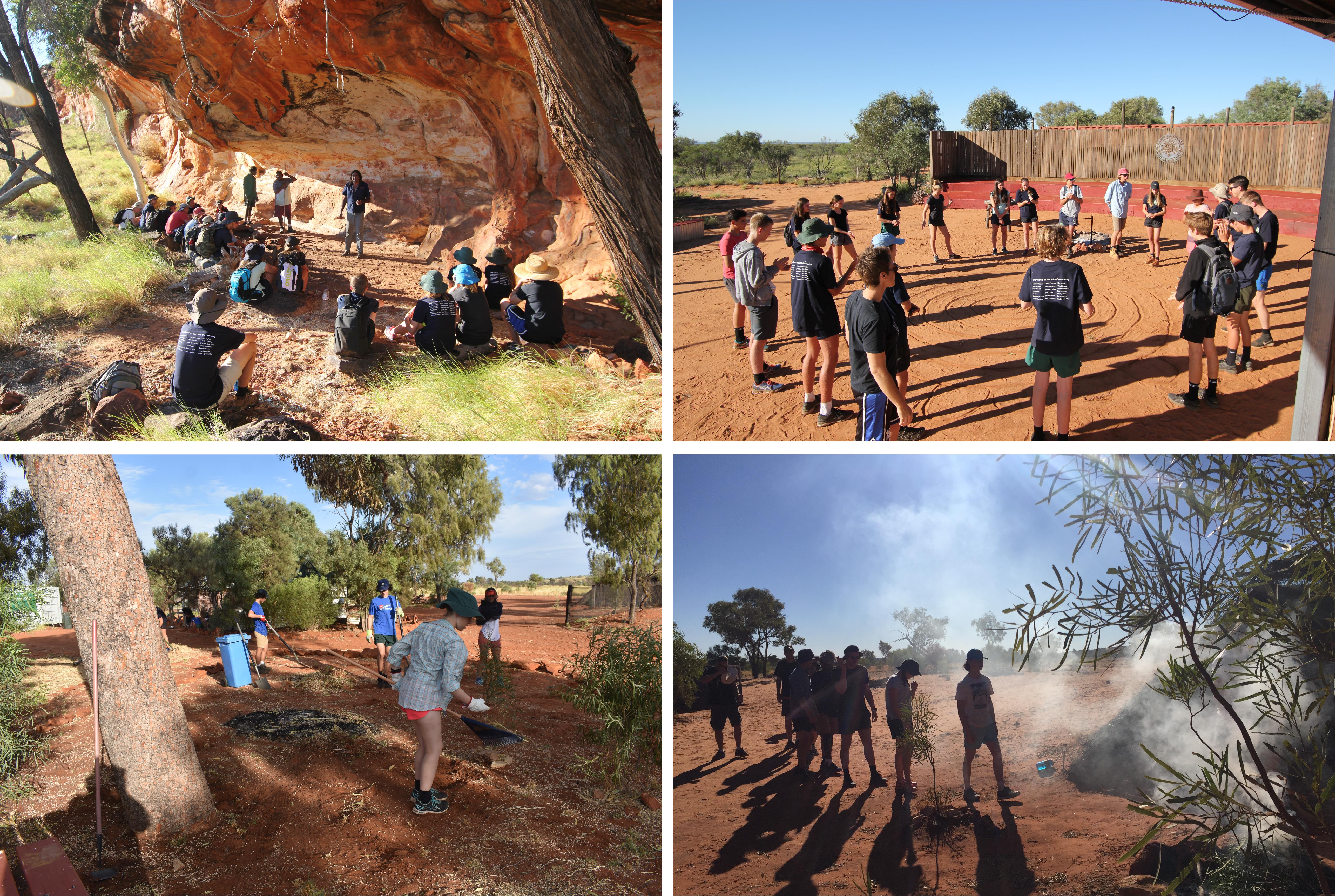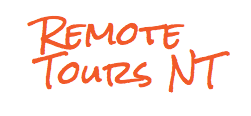We believe the most powerful tool for change is education. For the Indigenous youth who call Watarrka home, education provides equal opportunities, an understanding of how to lead a healthy lifestyle and skills in independence. For non Indigenous Australians, education can foster deeper respect for Indigenous cultures and a better understanding of the challenges faced by these communities everyday.
Inspired by the power of education, our Founder and Director Richard “Reg” Ramsden established Remote Educational Tours. Remote Tours is an educationally based, culturally aware tour company that has a strong emphasis on interaction with Aboriginal people and culture. Their tours provide visitors with an opportunity to immerse themselves in the culture and communities of Central Australia. It is through these interactive cultural experiences that the gap that exists between Indigenous and non-Indigenous Australians can be closed.
Remote Educational Tours has worked with many prominent schools from Australia's large cities and frequently organises educational tours into central Australia. Remote Tours believes every Australian child should visit the heart of Australia, Uluru, the sacred red rock, and witness for themselves the real situation regarding Aboriginal communities. They find that most students have a mistaken perception of Aboriginal people, often perpetuated by inexperience and the media. For many students, this is often their first authentic experience with an Aboriginal community. Through these tours, the next generation of Australian youth are able to see for themselves how today's Indigenous people live and the challenges they face.
This month we spoke to a handful of schools who have had the privilege of visiting the Watarrka region over the years.
 Above: Photos courtesy of Mentone Grammar
Above: Photos courtesy of Mentone Grammar1. When and how did your school first hear about the Watarrka Foundation?We first heard of the Foundation through Remote Tours who we partner in visiting Central Australia. Our first group of staff and students visited the Watarrka region in 2012.2. Describe the activities and programs that your students have been involved with whilst visiting the Watarrka region.
The visit to the Watarrka region is part of a sequential Learning journeys program in our Middle School which sees the students ‘circles of connectedness’ grow as they are developing as young people. They visit Sovereign Hill, in Ballarat, in Year 5, Canberra in Year 6, Watarrka in Year 7 and then an Asian country in Year 8. When they are in Watarrka they are introduced to the amazing culture of our indigenous people, they visit the School and get to meet the staff and students, they attempt some indigenous art and, generally, they are educated on and walk through Kings Canyon. Before getting to Watarrka they spend some time at Uluru.3. How has the experience of visiting the Watarrka region been of value to your student’s learning and development?This visit has been extremely powerful for our staff and students. They come back with a much greater understanding of the beauty of this region and the beauty of the people. They have a much higher respect for indigenous culture. We have been fortunate to host the Watarrka kids and staff at our School which was am amazing, life changing experience for all involved. We have an active Reconciliation Action Plan operating within our School and once the students visit the Watarrka region they have a greater understanding of the importance of such a document in mainstream Australia. Educationally they are better people but their hearts are so much better for this experience.4. Why does your school choose to contribute to the Foundation?We can see that our support of the Watarrka Foundation is making a genuine difference to lives of our indigenous people on a daily basis
 Above: Photos courtesy of Braemar College
Above: Photos courtesy of Braemar College
1. When and how did your school first hear about the Watarrka Foundation?
In 2011 a teacher at school heard about Remote tours and the program and with a small group of students we made our first trip in Sept of that year with our Year 9 students. We have been attending every year since and this year would have been our 10th visit.
2. Describe the activities and programs that your students have been involved with whilst visiting the Watarrka region.
In our first year we built all the picnic tables, the main campsite which and cleared buffle grass (in 2011 it surrounded the whole Area right up the main building). Every year we have cleared buffle but as well we created the vegetable garden, donated and built the playground, basketball ring and court area, fencing, car bonnet signs/art work, creating paths, drainage around the school and painting houses. As well as being immersed in the cultural programs and working with the school (the highlight for students). We also hosted 5 students at our school along with Mentone Grammar last year to show our part of the world and school to the Watarrka school students. In our first year we met Viv as a cheeky 4/5 year old and have watched her grow over the years and it was wonderful to have her visit last year with the school.
3. How has the experience of visiting the Watarrka region been of value to your student’s learning and development?
All students come back from Lilla and the Watarrka region with a new outlook on life. Enjoying the simple things (we make this trip totally technology free), a better understanding and advocate for indigenous issues and education, an understanding of the environment and importance or working together to achieve goals and appreciate what they all have and take for granted each day.
Watarrka and Lilla are a part of the Braemar story and every student who attends keeps some of that red sand in their blood. We even have a dog that is from Lilla! Reg’s dog had puppies (dingo/ red heeler) one of the teachers who was instrumental in setting up this program fell in love with one. His name is Watty (short for Watarrka). He lived in the Macedon Ranges and he now lives in England, a bit of Lilla overseas! (see photo above)
4. Why does your school choose to contribute to the Foundation?
Education should be an equal right for all students no matter where they live. Our contribution to the foundation allows for students in the Watarrka region to access an education on country and not have to leave their family and homes.
 Above: Photos courtesy of Geelong College
Above: Photos courtesy of Geelong College
1. When and how did your school first hear about the Watarrka Foundation?
We have been visiting the Lilla community each year with Reg Ramsden and Remote Tours since 2013. 2020 would have been our eighth year, however, we unfortunately were unable to travel at the end of March due to the COVID-19 situation.
2. Describe the activities and programs that your students have been involved with whilst visiting the Watarrka region.
Our visit to Lilla and the Watarrka region is part of a program called Fulfilling Lives. This involves all Year 10 students who participate in various programs in either our local community, various indigenous communities in the Northern Territory and overseas, mostly in SE Asia. At Lilla the students immerse in Indigenous culture and also participate in a variety of projects (depending on what is needed each year) including helping at the Watarrka school, ‘laying’ part of a basketball court, weeding, helping with setting up the veggie gardens etc. These projects are facilitated with Remote Tours and the Watarrka Foundation. The students have also visited other communities within the Watarrka area. A number of staff have also visited the region and been involved in a variety of programs with the Watarrka Foundation including the Annual Sports and story festival and the opening of the new school building.
3. How has the experience of visiting the Watarrka region been of value to your student’s learning and development?
It is very beneficial for our students in many different ways and on many different levels! Immersing in indigenous culture at Lilla helps them understand the significance of the traditional lands to indigenous communities and has given them experiences that would never be possible in the classroom. They learn about the richness and depth of our indigenous culture. This will help them be more informed and understanding as they enter their adult lives and can contribute positively to reconciliation. It has broadened their horizons (most have never been to Outback Australia) and taught them to understand different ways of living. Many have found the experience to be life-changing and value the relationships made. It is also important for our students to learn and understand the importance of helping others: the positive benefits for all involved in service to others is highly valued.
4. Why does your school choose to contribute to the Foundation?
We value the work the Watarrka Foundation does within the communities in the Watarrka region by developing programs that give the children sustainable skills that are beneficial for the long term and help the communities to thrive on their traditional lands! It is a very worthwhile organisation that is supporting and making a difference to the communities it works with!






Copyright © 2026 All Rights Reserved | Privacy | Terms & Conditions